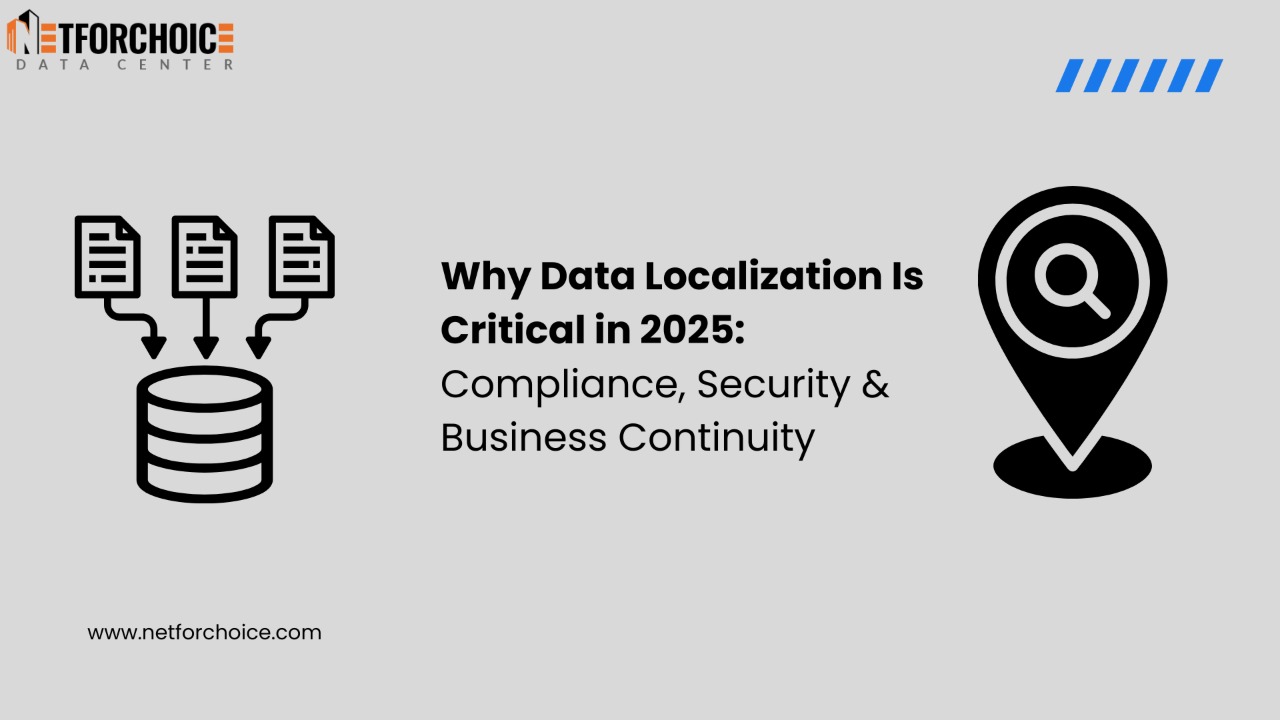Why Data Localization Is Critical in 2025: Compliance, Security & Business Continuity

In today’s digital-first economy, organizations across the BFSI, healthcare, and government sectors are facing increasing pressure to store and protect sensitive data. With the increasing regulation and threat of cyberattacks, data localization in 2025 is an absolute requirement for compliance, data protection, and business continuity.
But what exactly is data localization, and why is it so important today? Let’s break it down.
What Is Data Localization?
Data localization is a legal or regulatory requirement under which data generated in a nation is stored, processed, and managed inside the nation’s borders.
For instance, banks may be compelled to store all customer transactional data in local data centers for national law purposes. Similarly, healthcare organizations must localize patient health records to preserve secrecy and comply with HIPAA or local regulations.
Why Data Localization is Important in 2025
- Compliance with Future Regulations
In 2025, governments around the world have tightened data protection laws. For example:
- India’s DPDP Act (2023) now prescribes more stringent handling of personal and sensitive data.
- The EU’s GDPR still enforces data residency laws.
- Regulators in BFSI mandate localized financial data stored on-site for risk management and audit purposes.
- By localizing data, businesses remain compliant, do not incur fines, and secure customer trust.
- Greater Security from Cyber Attacks
Cybersecurity intrusions reach an all-time high in 2025. Having data on premises:
- Lessens vulnerability to global cyber threats.
- Maintains data sovereignty and enhanced access control.
- Enhances disaster recovery through geographically proximate cloud backup solutions.
- For health care providers, that means safeguarding patient records. In banking, it guarantees transaction integrity and protection from fraud.
- Business Continuity & Disaster Recovery
Natural calamities, political unrest, and global internet outages highlight the requirement for local cloud infrastructure. Where data is located closer to operations:
- Businesses enjoy low latency and faster recovery during an outage.
- Business continuity plans (BCP) are more strengthened.
- Critical workloads are not affected, even during global disruptions.
- For government agencies, this translates to uninterrupted citizen services. For BFSI, it translates to uninterrupted transaction processing.
Most Important Industries Compelling Data Localization in 2025
- BFSI (Banking, Financial Services & Insurance): RBI and international standards compliance.
- Healthcare: Patient’s data privacy under HIPAA and local health acts.
- Government & Public Sector: Citizen data protection and sovereignty.
- AI & Cloud businesses: Hosts’ training datasets within premises for compliance as well as performance.
How NetForChoice Enables Data Localization
In NetForChoice (10PB Enterprise Cloud Platform), we offer:
- India-hosted Tier-IV data centers to ensure regulatory compliance.
- BFSI, healthcare, and cloud storage solutions specific to government institutions that suit their requirements.
- Disaster recovery & backup capabilities for business continuity assurance.
- Data sovereignty & compliance-built infrastructure for businesses.
Organizations gain compliance, security, and resilience in one single package with data localization integrated into our cloud infrastructure.
Conclusion
By 2025, data localization is no longer an option—it’s a strategic necessity. BFSI enterprises, healthcare, and government institutions must shift to localized cloud infrastructure to be compliant, secure, and resilient.
By choosing providers like NetForChoice (10PB), companies can future-proof operations, maintain data sovereignty, and build long-term customer trust. As we move deeper into the digital decade, the organizations that prioritize data localization today will be the ones leading confidently tomorrow.




